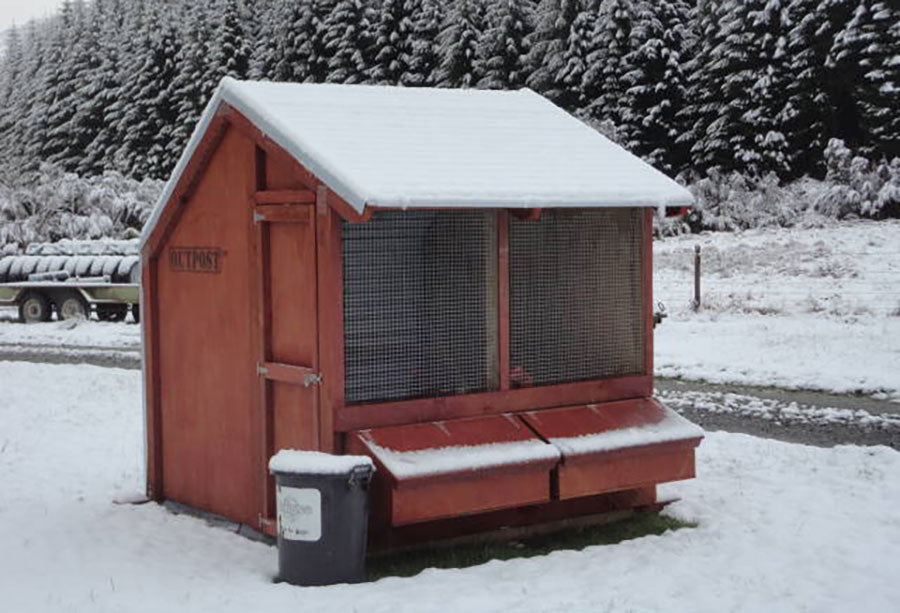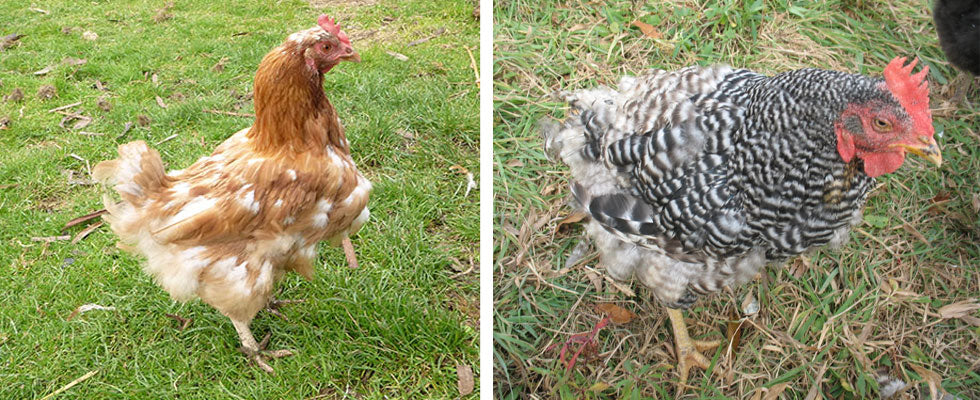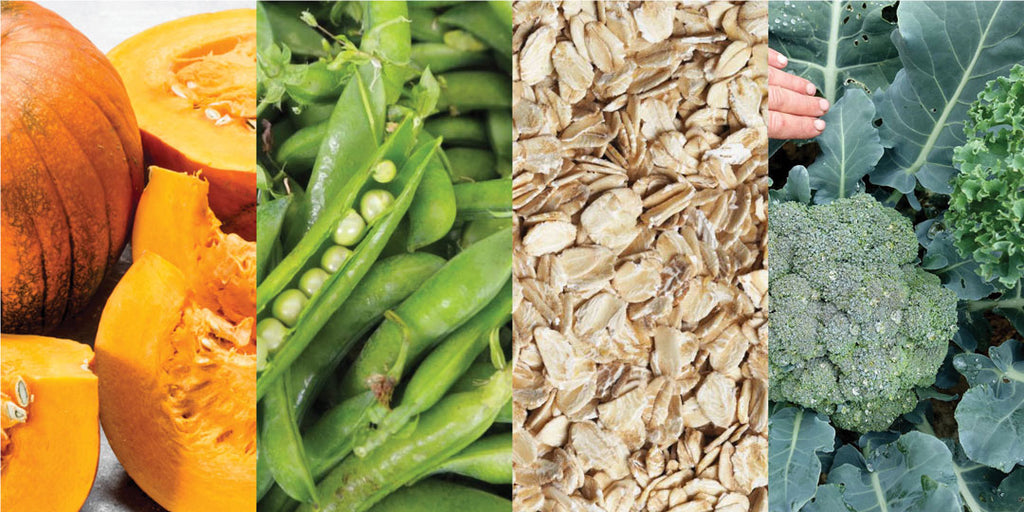Chickens are affected by dropping temperatures & the change in day light hours during Autumn. Most hens will moult during late summer or early Autumn.

Keeping your chickens warm
Chickens have a natural way of keeping warm and in general, most chickens tend to be cold hardy enough for NZ conditions. Chickens can actually handle the cold of winter better than the heat of summer. They have an instinct to fluff their feathers to keep warm. They also have the natural instinct to roost together.
Some people choose to heat their chicken house over winter. Many argue that a heated coop is not only a fire hazard, but also not healthy for chickens. Their bodies may not easily adjust to the drastic temperature change inside and outside of the coop.
Also, remember that heating the coop can increase moisture. Too much moisture inside the coop can cause illness or frostbite to your flock.
We recommend that if you have an Outpost Hen House that you reposition it so that it is facing away from the prevailing wind during the winter months.
GET A FREE COPY OF OUR CATALOGUE
Reduced day light hours may reduce egg production
Chickens require about 14 hours of daylight to produce eggs regularly. They also lay best when temperatures range between 10 to 26 °C. For these reasons, it can take a chicken two to three days to produce an egg naturally during the cold, dreary winter months.

Adding artificial light can trick a hen’s body into thinking she is receiving adequate light, thus producing eggs more frequently. This can be taxing on the hen, possibly even causing stress or disease.
The natural way to raise chickens during the winter is to allow their bodies to rest. Adequate rest for a chicken should include at least 8 hours of darkness per day. So, if you choose to use lighting/heat in your coop, set it to a timer.
Your chickens may start moulting
Chickens that go into moult will slowly lose their old feathers and new feathers will grow in the place of old. It can be shocking because birds will often look very scruffy and some will look pretty much naked which can be quite alarming to see.
During the Autumn molt season, your chickens will benefit from additional protein in their diet to help them grow in nice new feathers for winter. Some good high protein foods such as pumpkin, peas, oats, green vegetables, cooked egg or left over meat scraps will help.


Make sure they have high protein feed
Feathers are 85% protein so when birds moult, replacing their feathers, laying hens will usually stop producing eggs. Eggs are made up mainly of protein and it is too much for a hen to produce new feathers as well as eggs.
Pure breeds usually take longer to moult than hybrid hens. Occasionally hens will lay the odd egg during the moult but most will take a break. When a hen is going to moult, her plumage will take on a very dull appearance. It normally takes about 6 weeks for a young healthy hen to complete a moult.
Some poultry keepers supplement their birds diets with additional protein. Some good sources of protein are fish & meat Cauliflower also provides omega-3s and niacin, and niacin, which helps with bone growth, can be found in broccoli and oats also. Pumpkin seeds work as a natural wormer and are high protein. Spinach contains Vitamin A (for the immune system) and Vitamin K (helps blood clotting and bone growth) as well as protein. All these foods make for healthy treats year round for your flock.
Outpost sell Dried Mealworms which are a great treat for your hens during the moulting season. They are high protein and also a great source of vitamins & minerals that will help your hens recover faster.

Take a look at some other blogs:
Tips for keeping healthy chickens
How to choose a chicken coop your hens will love
Collect, clean and store your eggs right!





